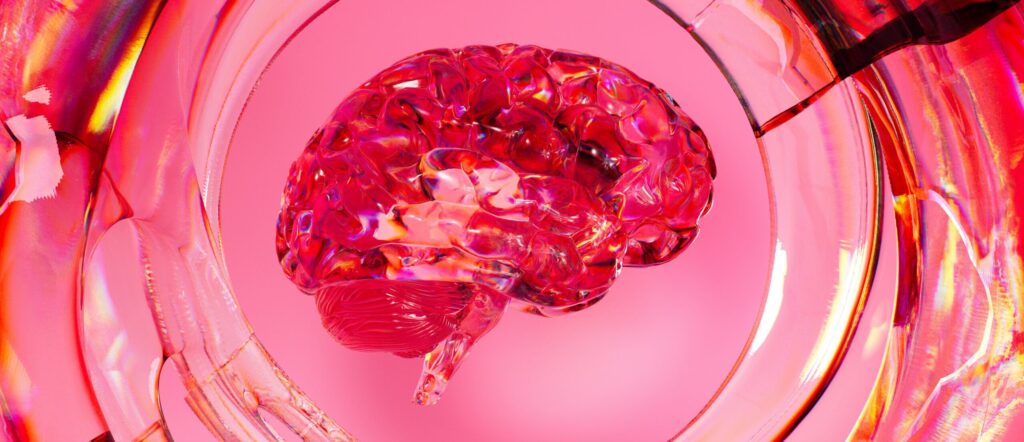
I did not believe there were any benefits of creatine for women other than a very muscular body. I used to view creatine as a bodybuilder’s ‘steroid’. It was for gym bros who want to gain a crazy amount of muscle. Then I learned about the benefits of creatine for women and I have been fascinated ever since.
Disclaimer: The information provided on this blog is for educational and informational purposes only and is not intended as medical advice. Always consult with a healthcare professional before making any changes to your health or wellness routine. The content shared here is based on personal experience, research, and general knowledge, but may not be suitable for everyone.
Despite being one of the most studied and safest supplements – the research on creatine supplementation for women specifically is lacking. However, what we do know about the benefits of creatine for women, and overall is very interesting and encouraging. In fact, when asked which supplements she would recommend for women, Dr. Stacey Sims says ‘Number 1 is creatine – doesn’t matter what age’. Let’s break it all down!
Creatine is a naturally occurring substance found in our bodies. 95% of it is found in your muscles, and the rest is found in your heart, brain, and pancreas. Your body is only able to make half of the creatine it needs. The rest needs to come from food or supplements. Food can provide additional creatine, but levels vary widely — and plant-based foods may contain none at all.
A study on the general population’s creatine intake actually showed that people may not be getting enough creatine through diet. Creatine supplements can be a reliable way to ensure you get your daily dose and reap all the benefits.
In addition to being a supplement that benefits to multiple organs and systems, creatine is also very safe to take long-term.
This post will explore the benefits of creatine for women: our muscles, bones, reproductive health, brain, mental health, and energy.
Muscle Mass & Bone Health
Creatine is to muscles and organs what fuel is to cars – it increases ATP, our body’s energy currency. Creatine boosts ATP production, helping you generate more energy and push harder in your workouts. Pushing harder can help you boost your results whether it’s during high intensity exercises or lifting heavier.
Starting from the age of 30, women begin to lose between 3%-8% of muscle mass every decade. As we age, we lose estrogen, further contributing to muscle loss. To help combat this change, we have to be mindful of building and maintaining a good muscle mass.
Creatine helps preserve muscle by supporting growth, energy, and recovery — especially when paired with strength training. Creatine supports muscle growth by activating biological pathways that promote muscle development. It does this by boosting protein formation, which increases the size of muscle fibers. It also boosts levels of insulin-like growth factor 1 (IGF-1), a hormone that affects muscle growth and repair. Higher IGF-1 levels support the development of lean muscle mass and enhance overall muscle function.
Reproductive Health
The benefits of creatine for women are usually associated with muscle and athletic performance, but emerging research suggests that it might also benefit menstrual health and menopause.
Menstrual Health
Few studies on women have looked into creatine’s direct impact on women’s menstrual cycles but some studies suggest a connection.
In 2024, a study found that women with higher creatine levels were more likely to have regular menstrual cycles. This might support women with PCOS who struggle with irregular periods.
(If you’re thinking of taking creatine to help with PCOS, make sure to consult your doctor first!)
That same study found fewer reproductive disorders in women taking 13 mg of creatine per kg of body weight daily. These disorders include:
- Irregular cycles
- Excessive birth weight in newborns
- Pelvic infections
- Hysterectomy and oophorectomy (removal of uterus and ovaries).

Research also suggests that creatine supplementation may be even more effective during the luteal phase when estrogen levels are high. Hormonal fluctuation during this phase can lead to increased fatigue and muscle breakdown. Creatine supplementation can help us maintain strength and reduce muscle breakdown. Creatine may also help enhance cell hydration during the luteal phase which has been linked to reducing menstrual discomfort.
Menopause
Creatine can be a great supplement to take during and after menopause as it may support women through physiological changes.
This period in women’s lives leads to a decline in muscle mass and strength, which we do not want since muscle is difficult to build but absolutely essential to maintaining a good quality of life! Especially when combined with resistance training, creatine supplementation can help women preserve muscle while gaining strength. One review found that just 7 days of high-dose creatine improved muscle mass and function in postmenopausal women, especially with strength training. Another study found that postmenopausal women who supplemented with creatine during a 12-week resistance training program saw significant improvements in upper and lower body strength compared to those who did not.
Creatine supplementation can also help maintain bone density and may reduce the risk of osteoporosis and fractures.
Postmenopausal women are at an increased risk of osteoporosis due to decreased estrogen levels. Emerging evidence suggests that creatine supplementation, particularly when combined with resistance training, may have a positive impact on bone health. A study involving postmenopausal women demonstrated that creatine supplementation during a 52-week resistance training program attenuated the rate of bone mineral loss in the hip region compared to a placebo group.
Mental Health & Mood
Women are more likely to experience depression and mood disturbances, especially due to hormonal fluctuations.
There’s been more and more evidence of the benefits of creatine on mental health and mood. Creatine supports healthy neurotransmitter function, particularly dopamine and serotonin, crucial chemicals that influence mood and emotional stability.
A large-scale population study found that adults consuming the lowest amounts of dietary creatine had a 31% higher risk of depression, reinforcing the connection between brain creatine levels and mood health.
In another study, women diagnosed with major depressive disorder who combined an SSRI (selective serotonin reuptake inhibitors) antidepressant with daily creatine supplementation (5 grams/day) experienced nearly an 80% reduction in depressive symptoms. By comparison, the medication-only group saw a 62% improvement. Remarkably, the women supplementing with creatine reported feeling better significantly faster, as early as two weeks into treatment.

Regular creatine supplementation may help sustain brain energy, buffering against these hormonal impacts. By ensuring steady energy availability to brain cells, creatine could reduce feelings of irritability, anxiety, and fatigue, making everyday emotional balance more manageable.
Mental fatigue from juggling professional and personal responsibilities can negatively impact mood. Creatine also offers a promising solution by significantly reducing feelings of mental fatigue during challenging cognitive tasks.
Even when sleep-deprived, creatine has been shown to sharpen mental clarity, reduce brain fog, and help maintain consistent cognitive performance. Over time, this improved cognitive resilience contributes positively to mood, providing a clearer and more confident outlook throughout stressful periods.
Brain Health & Cognition
Our brain is highly complex and consumes about 20% of our body’s resting energy, even though the organ only makes up 2% of total body mass. Creatine supplementation can play an important role in supporting our brain health and cognition, especially during times of high mental effort or stress.
Studies have shown creatine supplementation to help improve various cognitive functions from memory to attention and cognitive processing. Taking creatine also seems to help decrease feelings of mental fatigue, allowing for sustained cognitive performance, particularly under intense mental demand.
For instance, a systematic review found evidence suggesting that oral creatine supplementation may enhance short-term memory and intelligence/reasoning in healthy individuals.
A study demonstrated that creatine supplementation (8 g/day for 5 days) reduced mental fatigue when subjects repeatedly performed simple mathematical calculations.
Research involving sleep-deprived individuals showed that a single high dose of creatine improved cognitive performance and processing speed, suggesting its potential to counteract fatigue-related cognitive deterioration. While creatine supplementation won’t increase the quality of your sleep, it can help you ‘rebound’ better after a bad night’s sleep. This means fewer brain fog days during your cycle, long work days, or when you’re running on less sleep
Sleep deprivation appears to be more detrimental for women than men, with women showing lower levels of alertness and sleepliness-related risks. The effects of sleep deprivation in women have been reported particularly during the follicular phase (when estrogen is lower), which is also when creatine kinase levels appear to be lowest. As a result of this promising research, creatine supplementation throughout the menstrual cycle may help reduce the adverse effects of low estrogen on cognition and sleep.

Final thoughts…
Human trials over several months in reproductive-age women have not flagged negative effects on menstrual cycles, hormones, or gynecologic health. However, research focused on women is lacking and more clinical trials are needed to confirm whether creatine can systematically improve cycle regularity or help manage conditions like PCOS and endometriosis.
There is some evidence creatine supplementation during pregnancy and postpartum might be beneficial. BUT you should definitely have a conversation with your doctor before taking any supplements, especially during pregnancy and after if you’re breastfeeding.
Below are some resources you can read to be informed for your discussion with your doctor:
- https://www.hudson.org.au/news/creatine-and-pregnancy-what-you-need-to-know/
- https://bmcpregnancychildbirth.biomedcentral.com/articles/10.1186/1471-2393-14-150
- https://pmc.ncbi.nlm.nih.gov/articles/PMC7912953/pdf/nutrients-13-00490.pdf
Anytime you’re looking into a supplement, keep in mind that its function is to supplement only. It isn’t meant to replace a healthy lifestyle and diet or replace anything fully. In an ideal situation, a good and relevant supplement supports your body in its functions. Don’t expect a single supplement to transform your health but rather to be one of the many building blocks that contribute to a healthier life.
Have you tried creatine? What’s your experience been like?
Which one to buy?
When buying creatine, make sure it’s creatine monohydrate, it’s the most studied and widely recommended form due to its safety and efficacy. Most studies use and suggest 3-5g/day to get the benefits of supplementation. When it comes to the form, I like simple supplements so I take it in powder form – I use the Sports Research unflavored creatine monohydrate.
Dr Stacey Sims recommends Creapure®, patented and made by a German company. Creapure uses a water-based wash to produce the creatine; others use an acid-based wash, which can cause some gastric side effects. I’m planning on switching to this one by Nutricost, which uses Creapure: https://a.co/d/iihZ38N
Gummies are another form and are increasingly popular, but I would suggest avoiding them. Testing of gummies has shown that almost half of them don’t have the amount advertised or enough dosage to be effective. This Youtube video by James Smith is really interesting to learn more about creatine gummies: https://youtu.be/GhhQ2mJ6Q1c?si=NaYePXpZwzuMWaHQ
If you really want to take creatine in gummy form, check out this article that shows which gummies met their label claims: https://www.wholefoodsmagazine.com/articles/16736-now-testing-identifies-creatine-gummies-failings
TLDR – The Benefits of Creatine for Women (3–5g/day):
- Builds & preserves muscle and bone
- Supports menstrual health & may aid PCOS symptoms
- Helps mood, energy, and brain clarity
- May reduce mental fatigue, especially during hormonal fluctuations
- One of the safest and most affordable supplements out there

